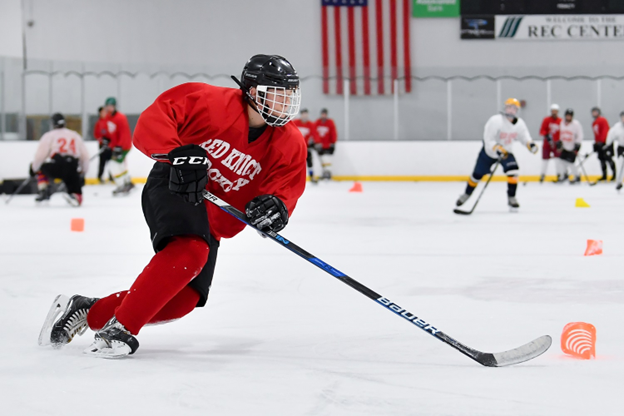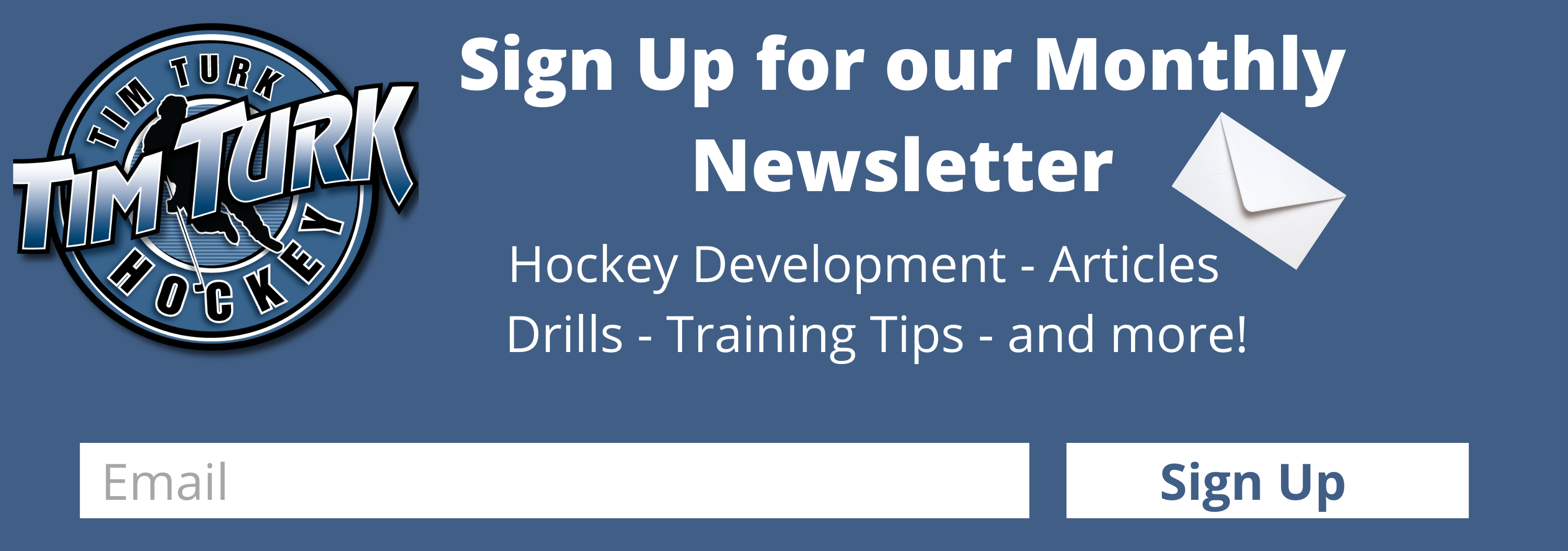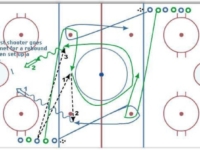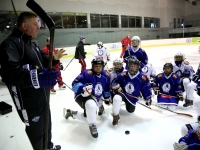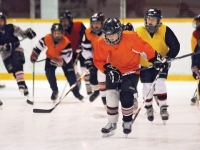It is something that all young athletes have to deal with: how do you stand out from other players on your own team? Sure, performance on the ice is key, but to get noticed by the coaches or even potential scouts, it takes a lot more than just a good game to really stand out. Here are a few tips on how to get noticed on and off the ice!
Show Up Early and Often
Nothing gets you in the good books with a coach faster than showing up early to practices and games. Being one of the first skaters on the ice shows everyone that you mean business. But it’s not just being on the ice and shooting pucks or working on your stickhandling. Make sure they know you are taking care of your game off the ice as well. Take care of your equipment before you hop on the ice and take care of your fitness with a good stretching routine as well. For youth hockey players, this message also needs to be relayed to the parents who are in charge of getting the players to the rink. Nothing is worse than having your kid running to the dressing room as the rest of his team is warming up.
Lend a Helping Hand
Sportsmanship and leadership are two qualities that cannot be taught by others. If you can exhibit these traits with your teammates and your opposition, you will earn their respect as well as that of your coaches. Help out your struggling teammates by encouraging them and keeping a positive spirit on the ice and on the bench. Shake hands with your opponents following a game, and treat the on-ice and off-ice officials with respect while you are playing. Volunteering for drills or examples in practice is also a great way to get noticed by your coaches and teammates. Put yourself out there, because if you don’t we can guarantee that someone else will!
Stay Humble
Maybe you are the most skilled player on the team that scores goals and sets up your teammates. None of that matters if you do not stay humble which is one of the major pillars of being a successful hockey player. There is a reason why arrogant professional players are not fan favorites, so do not make the mistake of following in their footsteps. Use your skill and expertise to help your teammates both on and off the ice. Avoid things like showboating after a goal or celebrating when your team has a big lead. Coaches will look at these things to see who the real leaders are in a dressing room.
Be Coachable
Well isn’t every player coachable? Not at all! Do you listen to instructions and pay attention when coaches are speaking at practice? Do you take constructive criticism well and use it as a way to learn from a mistake? If you do, then coaches should enjoy having you on the team. There are always those players who love to add in their own variations to drills or talk back to coaches who try and provide some feedback. This goes hand in hand with being humble, and treating your coaches with respect is just as important as treating other players with it too.
Skate Hard and Backcheck!
There is nothing a coach loves to see more than a forward putting their head down and skating back to help the defense. When a coach and your teammates see that kind of effort in getting back, it is infectious. Other players will begin to follow suit and before you know it you have created a team culture of skating hard. These are the things that translate into team wins on the ice. Coaches love this and they will acknowledge it. Always remember the old saying: offense wins games, but defense wins championships!
Look to Improve Your Skating
As you get older, it will become apparent which players can succeed at higher levels and which players may have more difficulty. This is because in hockey, skating is the ultimate skill that can truly set players apart. In youth hockey, it can be a bit more difficult to find time to practice your skating. For the parents out there, look into enrolling your kids into extracurricular hockey activities like power skating classes. The added training will mean a world of difference for their abilities and performance on the ice. It has been long said that hockey coaches, at any level, look at a player’s skating first to determine if they will make the team. Not only does strong skating help when you have the puck, but it ensures that you are the first player to a loose puck and provides pressure to opposing defenses. If you are going to improve one skill in your repertoire, make sure it is your skating abilities!
Put in the Work in the Offseason
If you keep up with your diet and fitness in the offseason and come prepared for the season, a coach will notice it. In fact, go out of your way to have a discussion with your coach about what you can do to improve your skills away from the rink. Keeping your cardio levels up and staying fit will help keep the rust off when you finally do return to the ice. You simply do not want to show up at tryouts for a new team or the first practice of a new season, and look like it is the first time you have been on skates in several months. If you put in some serious work in the offseason, the results will follow on the ice. You better believe that coaches can tell which players worked to improve in the offseason, and which players sat around doing nothing!


